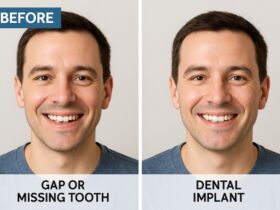Addiction is an insidious condition that creeps up on many people, often before they realize what’s happening. And because addiction can take many forms, from drugs and alcohol to gambling and social media, it can be challenging to detect. That’s why recognizing the signs of addiction early is so crucial. It’s easy to overlook the subtle cues that indicate a person is struggling, especially if you’re not familiar with addiction’s intricacies.

But by understanding the indicators of addiction, you can offer support and intervene before the addiction takes a deeper hold. In this post, we’ll explore some of the most common signs of addiction, helping you identify and address these serious issues.
Understanding Addiction
Before delving into the signs, it’s crucial to understand what addiction entails. Addiction is characterized by compulsive engagement in rewarding stimuli despite adverse consequences. This can manifest in various forms, including substance abuse (like drugs or alcohol) or behavioral addictions (such as gambling or compulsive internet use). The key features include:
- Loss of Control: The inability to control use or behavior despite negative consequences.
- Craving: Intense desire or urge to engage in the addictive behavior.
- Negative Impact: Adverse effects on relationships, work, health, or other aspects of life.
Common Signs of Addiction
Behavioral Changes:
One of the earliest signs of addiction is noticeable changes in behavior. This can include sudden mood swings, irritability, secrecy about activities, or withdrawal from social interactions. For example, someone who used to be outgoing may become increasingly isolated.
Physical Symptoms:
Depending on the substance or behavior, physical symptoms can vary widely. These may include weight loss or gain, changes in sleep patterns, bloodshot eyes, tremors, or impaired coordination. Behavioral addictions might show through physical signs like repetitive actions or restlessness.
Financial Issues:
Addiction often leads to financial strain due to increased spending on substances or activities. Individuals may borrow money frequently, sell personal belongings, or struggle to meet financial obligations.
Neglecting Responsibilities:
As addiction takes hold, individuals may neglect responsibilities at work, school, or home. This can result in poor performance, frequent absences, or neglect of household chores and family obligations.
Denial and Defensiveness:
When confronted about their behavior, individuals struggling with addiction may become defensive or deny any problems. They might rationalize their actions, minimize the impact, or blame others for their difficulties.
Relationship Strain:
Addiction often strains relationships with family members, friends, or colleagues. Trust issues, arguments over money, and emotional distance are common signs. In severe cases, relationships may break down entirely.
Risk-Taking Behavior:
Engaging in risky behaviors, such as driving under the influence or unsafe sexual practices, is another indicator. This behavior stems from impaired judgment and prioritization of the addictive substance or behavior over personal safety.
Seeking Help
Recognizing these signs marks the initial stride in aiding individuals grappling with addiction. It’s vital to approach the situation with empathy and understanding, recognizing addiction as a medical condition necessitating professional treatment. Facilitating open communication and extending support are pivotal in steering individuals toward seeking assistance. If you’re looking for Melbourne rehab be sure to visit The Hader Clinic.
In Idaho, various addiction treatment options exist, ranging from outpatient counseling and support groups to residential rehabilitation programs tailored to individual needs. These resources play a crucial role in providing comprehensive care and aiding in the journey towards recovery.
In Conclusion
Understanding the signs of addiction is essential for early intervention and support. By recognizing behavioral changes, physical symptoms, and the impact on relationships and responsibilities, individuals can take proactive steps to address addiction effectively. Remember, addiction is treatable, and recovery is possible with the right support and treatment. If you or someone you know is showing signs of addiction, don’t hesitate to reach out to a healthcare professional or addiction specialist for guidance and assistance.
By raising awareness and promoting understanding, we can create a supportive environment where individuals can seek help without stigma or judgment. Together, we can make a difference in combating addiction and promoting healthier, happier lives.




